Table of Contents
ToggleSetting goals can feel like trying to find a unicorn in a haystack—exciting but a bit overwhelming. Yet, it’s a crucial step in turning dreams into reality. The right questions can act as your magical compass, guiding you through the fog of uncertainty. They help clarify what you truly want and how to get there without losing your sanity.
Imagine asking yourself the right questions and suddenly feeling like a goal-setting ninja. You’ll slice through confusion and carve out a clear path to success. Whether you’re aiming for personal growth, career advancement, or just trying to remember where you left your car keys, these goal-setting questions can transform your approach. So grab a cup of coffee and get ready to unlock the secrets to achieving your aspirations—because who wouldn’t want to level up their life?
Understanding Goal Setting Questions
Goal-setting questions foster clarity and aim in both personal and professional settings. They help individuals articulate their ambitions and establish actionable pathways.
Importance of Asking Questions
Questions play a crucial role in goal setting. They encourage self-reflection and offer insight into personal values and motivations. By pondering these inquiries, individuals identify specific objectives, prioritize tasks, and overcome obstacles. Engaging with goal-setting questions can boost confidence and commitment toward achieving long-term aspirations. Clarity gained through questioning enhances decision-making and encourages persistence, especially when challenges arise.
Types of Goal Setting Questions
Different types of questions serve distinct purposes in goal setting. Open-ended questions allow for exploration of desires, such as “What do I truly want to achieve?” Specific questions narrow focus, like “What steps will I take in the next month to reach my goal?” Reflective questions assess progress, such as “What obstacles have I encountered?” Additionally, motivational questions reinforce commitment, for example, “Why is this goal important to me?” Each type guides individuals in crafting actionable and meaningful goals, ensuring success in various aspects of life.
Crafting Your Own Goal Setting Questions

Creating tailored goal-setting questions enhances clarity and direction. By formulating these questions, individuals can deepen their understanding of personal and professional aspirations.
Open-Ended vs. Closed Questions
Open-ended questions invite exploration and reflection. They stimulate thought and encourage a more comprehensive discussion. In contrast, closed questions yield specific answers, helping to focus on particular aspects. For instance, asking “What drives you to achieve your goals?” allows for expansive answers, while “Do you enjoy setting goals?” prompts a simple yes or no. Utilizing both types can balance broader insights with focused clarity.
Examples of Effective Questions
Effective goal-setting questions drive self-assessment and reveal motivations. One might ask, “What specific outcomes do I want to achieve in the next year?” This ensures a clear trajectory. Another strong question is, “What challenges must I overcome to reach my goals?” Identifying obstacles fosters preparedness. Moreover, asking, “Who can support me in achieving these aspirations?” creates a network of accountability. Each question propels individuals toward actionable and relevant objectives.
Applying Goal Setting Questions
Goal-setting questions directly enhance clarity and direction. They empower individuals to refine their aspirations.
Personal Goals
Personal goals reflect individual values and desires. Individuals can clarify their ambitions by asking questions like, “What truly matters to me?” and “What achievements bring me joy?” Identifying challenges becomes essential, as it fosters growth. Understanding the potential obstacles helps create actionable plans. Individuals should also consider what support systems are in place. Engaging with friends or mentors can bolster motivation. Regularly reviewing these personal goals ensures alignment with evolving priorities. This practice strengthens commitment and enhances self-awareness.
Professional Goals
Professional goals shape career trajectories and drive advancements. Asking specific questions such as, “What skills do I want to develop?” or “What milestones indicate my progress?” focuses efforts on meaningful outcomes. Evaluating current performance against these goals aids in determining areas for growth. Seeking feedback from colleagues or supervisors fosters improvement and opens new opportunities. Establishing a timeline for achieving professional objectives can enhance accountability. Revisiting these aspirations regularly allows for adjustments in response to shifting career dynamics. This approach nurtures ongoing professional development and success.
Evaluating Your Goals
Effective evaluation of goals requires a reflective process that clarifies intentions. Answering goal-setting questions prompts critical thinking and self-discovery.
Reflecting on Your Answers
Reflection on responses to goal-setting questions reveals insights about motivations and barriers. Consider how each answer aligns with personal values. Analyze which goals genuinely resonate and why they matter. Scrutinizing feelings linked to past choices can highlight patterns or recurring challenges. Acknowledge achievements and areas needing improvement during this reflection, as this helps in identifying next steps. Engage with the answers regularly to ensure they continue to inspire and challenge.
Adjusting Your Goals Based on Responses
Adjusting goals based on insights gathered from reflections enhances their relevance. Identify goals that may no longer align with current priorities or aspirations. Modify specific timelines to reflect realistic expectations and personal circumstances. Setting new milestones can invigorate motivation and commitment. Seek feedback from trusted individuals to gain additional perspectives on your goals. Regular adjustments based on self-assessment foster resilience and adaptability during the pursuit of aspirations. Keeping goals flexible encourages consistent personal and professional growth.
Embracing goal-setting questions can transform the way individuals approach their aspirations. By engaging in self-reflection and exploring personal values through tailored inquiries, they can gain clarity and direction. This process not only enhances commitment but also fosters resilience when facing challenges.
Regularly revisiting these questions keeps goals aligned with evolving priorities, ensuring continued growth. With the right mindset and tools, individuals can navigate their paths more effectively, ultimately achieving their dreams while remaining adaptable to change.




